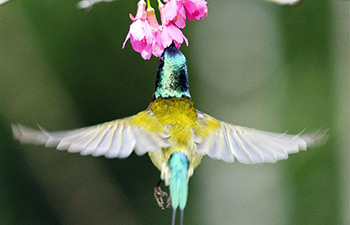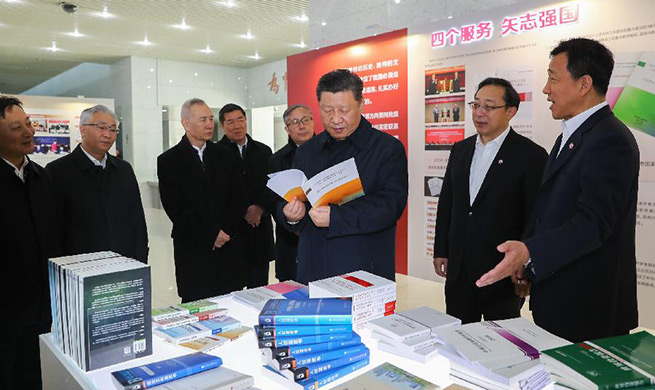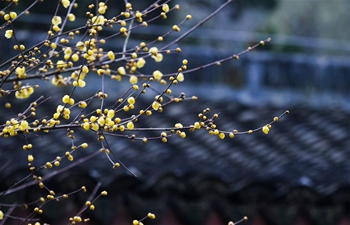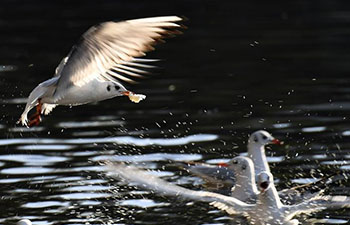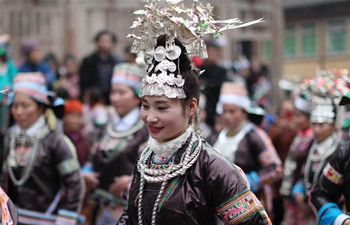LONDON, Jan. 18 (Xinhua) -- Wild coffee species are under threat, British researchers have found, with 60 percent of them facing possible extinction, including the wild relative of Coffea arabica, the world's favorite and most widely traded coffee.
The findings, published Wednesday in leading research journals Science Advances and Global Change Biology, came after two decades of research by scientists at British Royal Botanic Gardens, Kew, to discover, analyze and document the world's coffee species, and assess their extinction risk.
The selected coffee species, mostly in the remote forests of Africa and on the island of Madagascar, were threatened by deforestation, climate change, and the spread and increasing severity of fungal pathogens and pests.
Highlighting the impact of climate change on wild Arabica, researchers, using computer modelling, showed that, in Ethiopia, the number of locations where Arabica grows could decrease by as much as 85 percent by 2080.
The findings painted a picture of concern for the long-term future of global coffee production. The multi-billion-dollar coffee sector is founded on, and has been sustained through, the use of wild coffee species.
The global coffee trade currently relies on only two species, Arabica and Robusta, but given the myriad of emerging and worsening threats to coffee farming globally, other coffee species are likely to be required for coffee crop plant development, the research have suggested.
Aaron Davis, the head of coffee research at Kew and lead author of the Science Advances paper, urged targeted actions in specific tropical countries, particular in Africa, to protect the future of coffee.
"We hope our findings will be used to influence the work of scientists, policy makers and coffee sector stakeholders to secure the future of coffee production -- not only for coffee lovers around the world, but also as a source of income for farming communities in some of the most impoverished places in the world," Aaron said.

